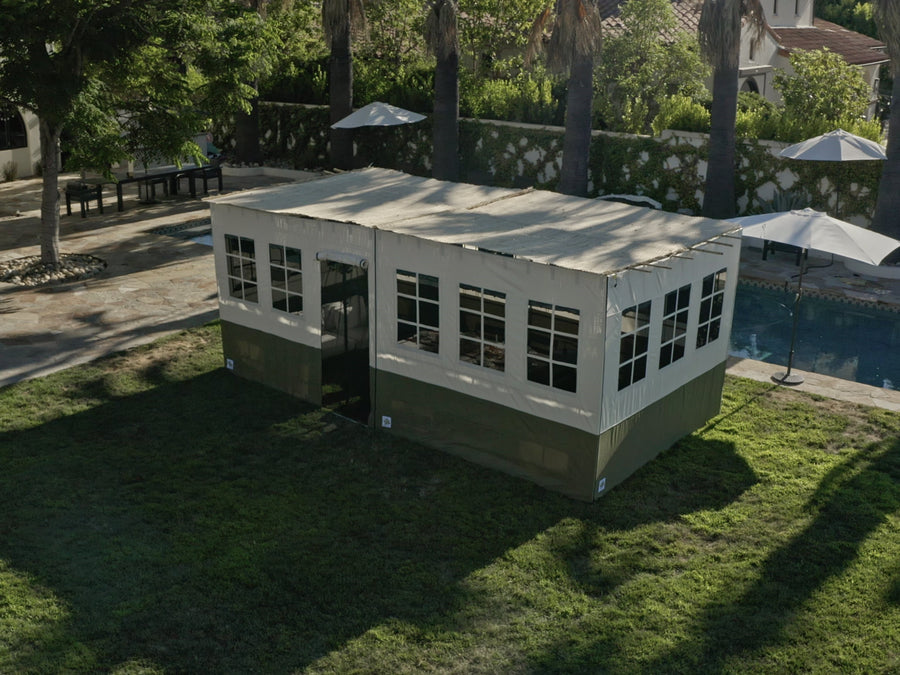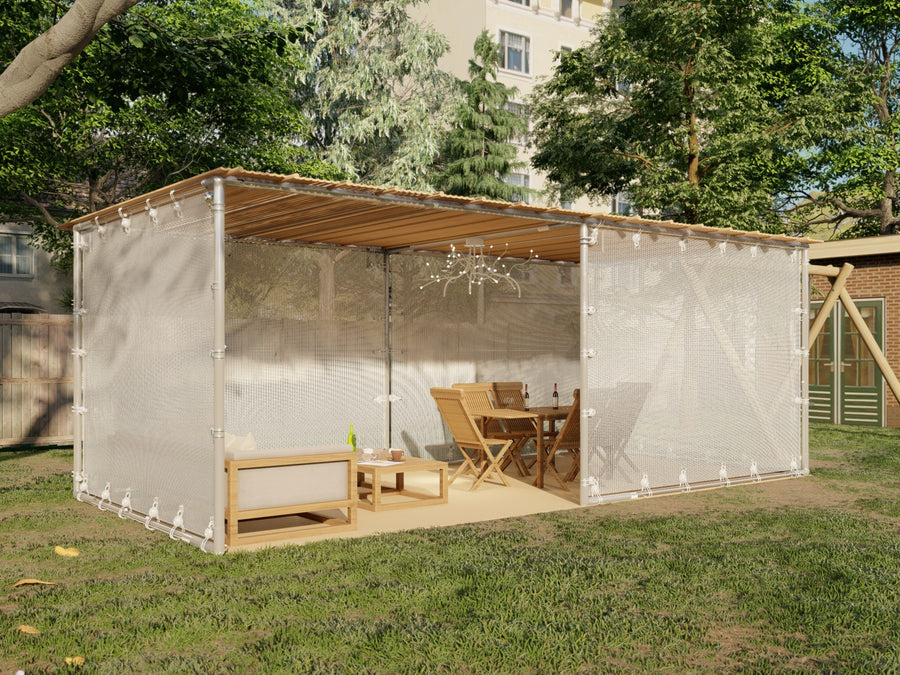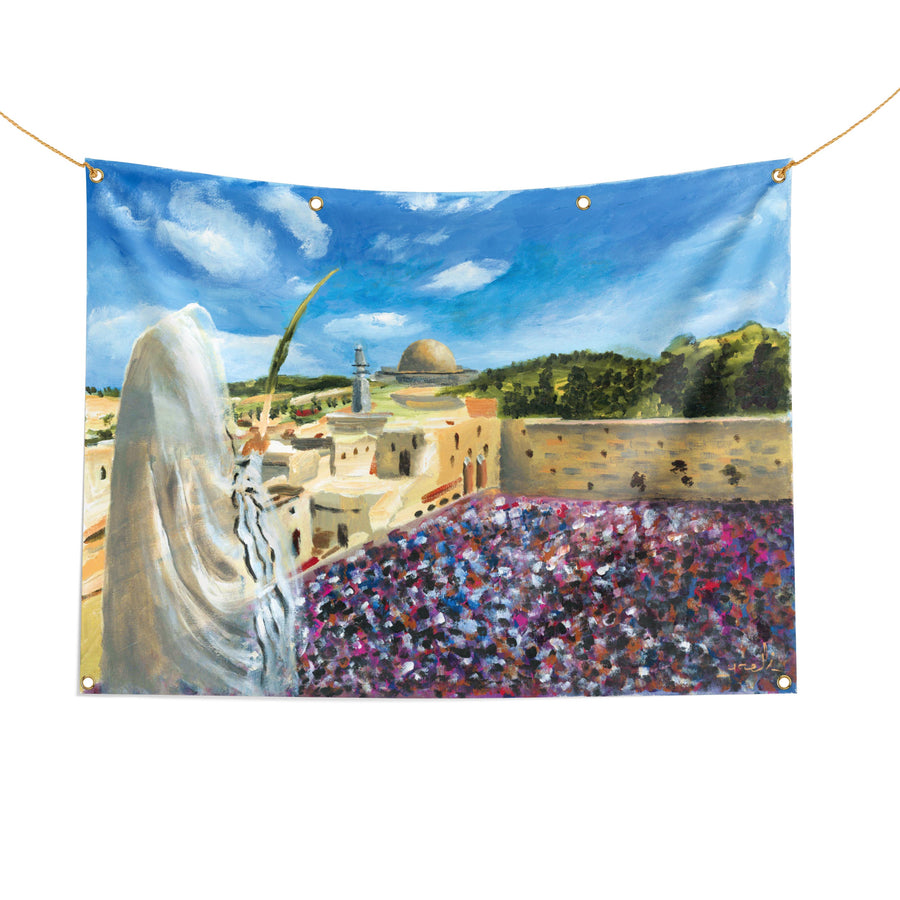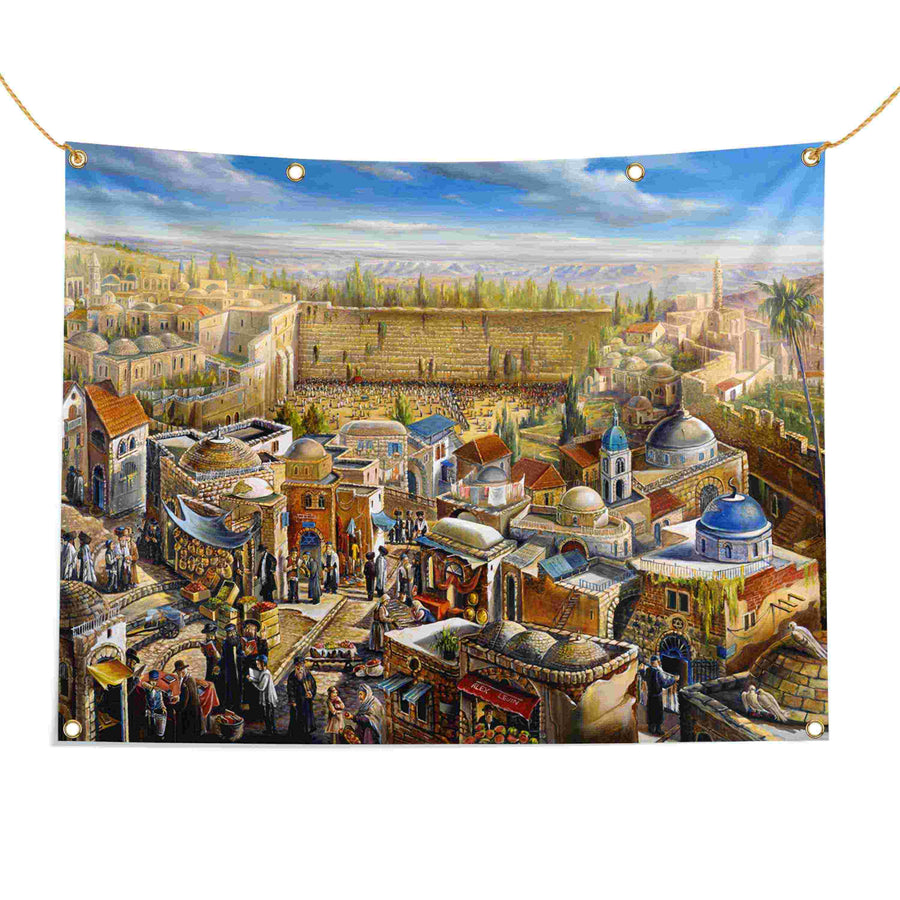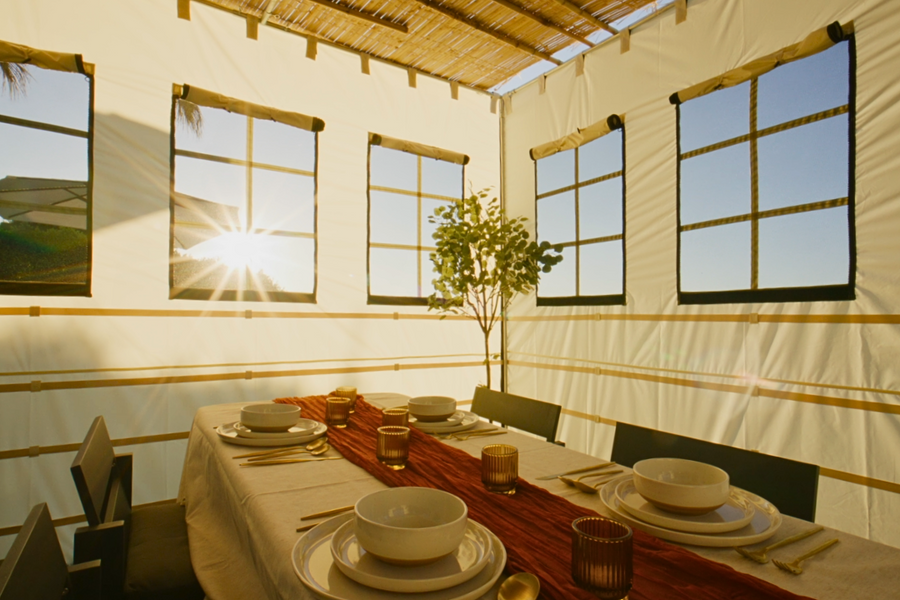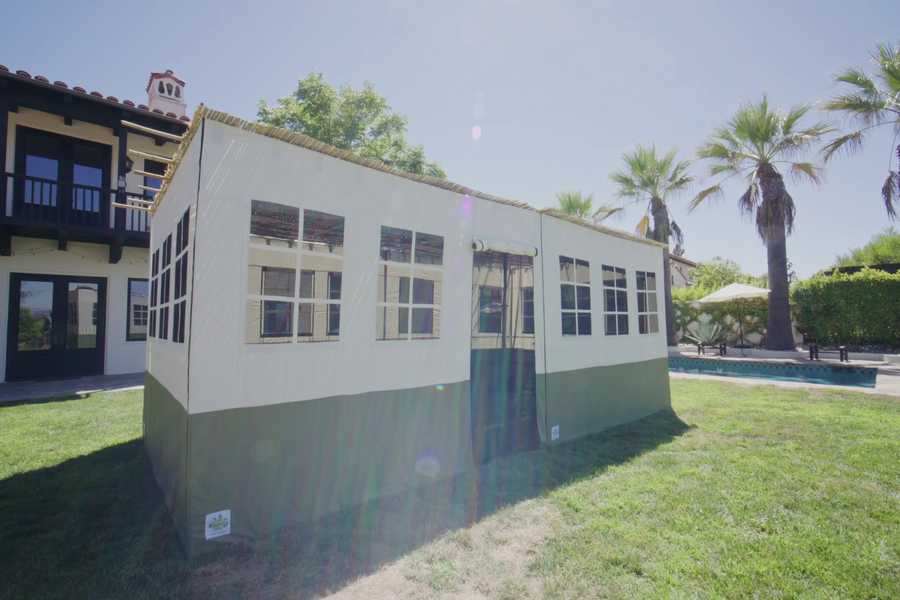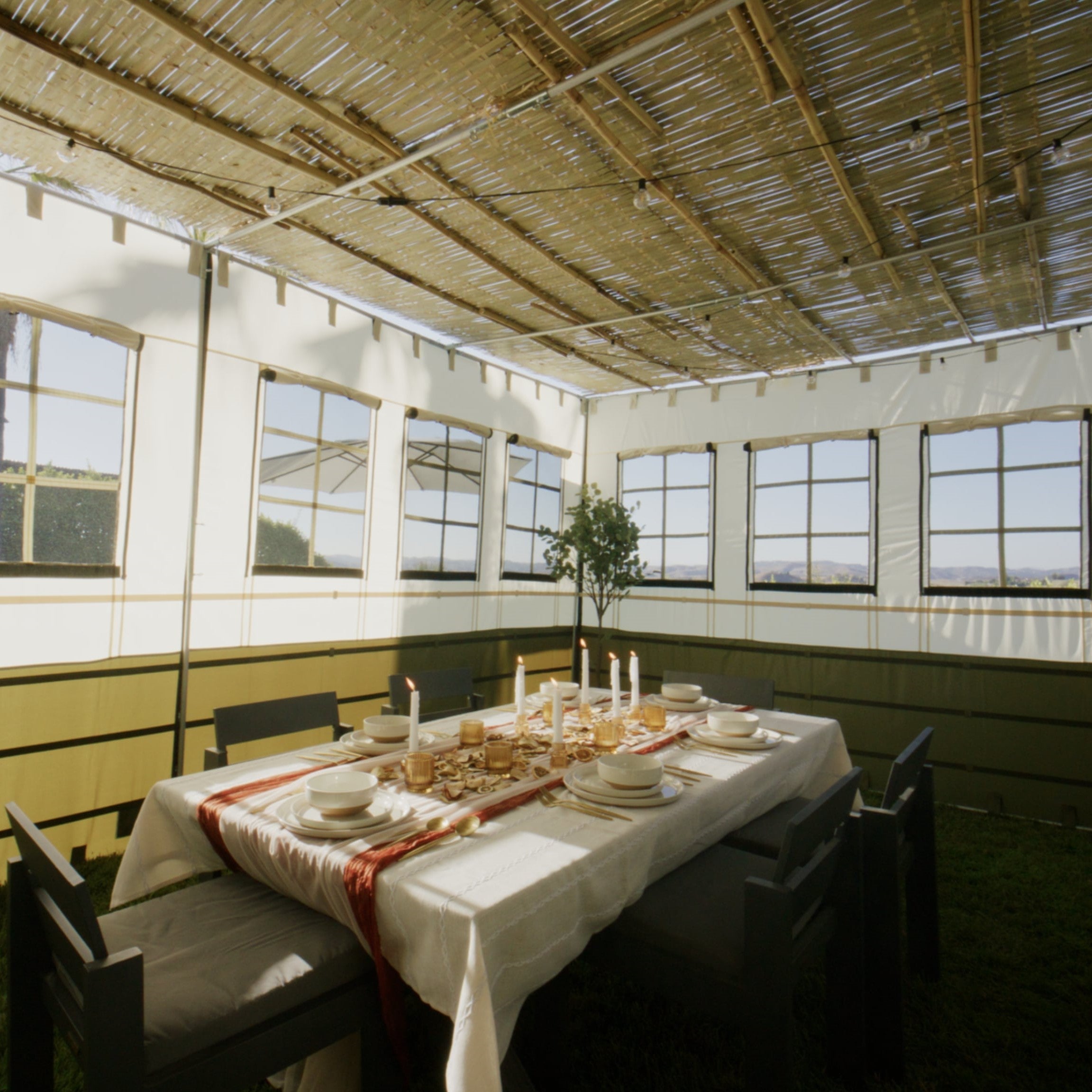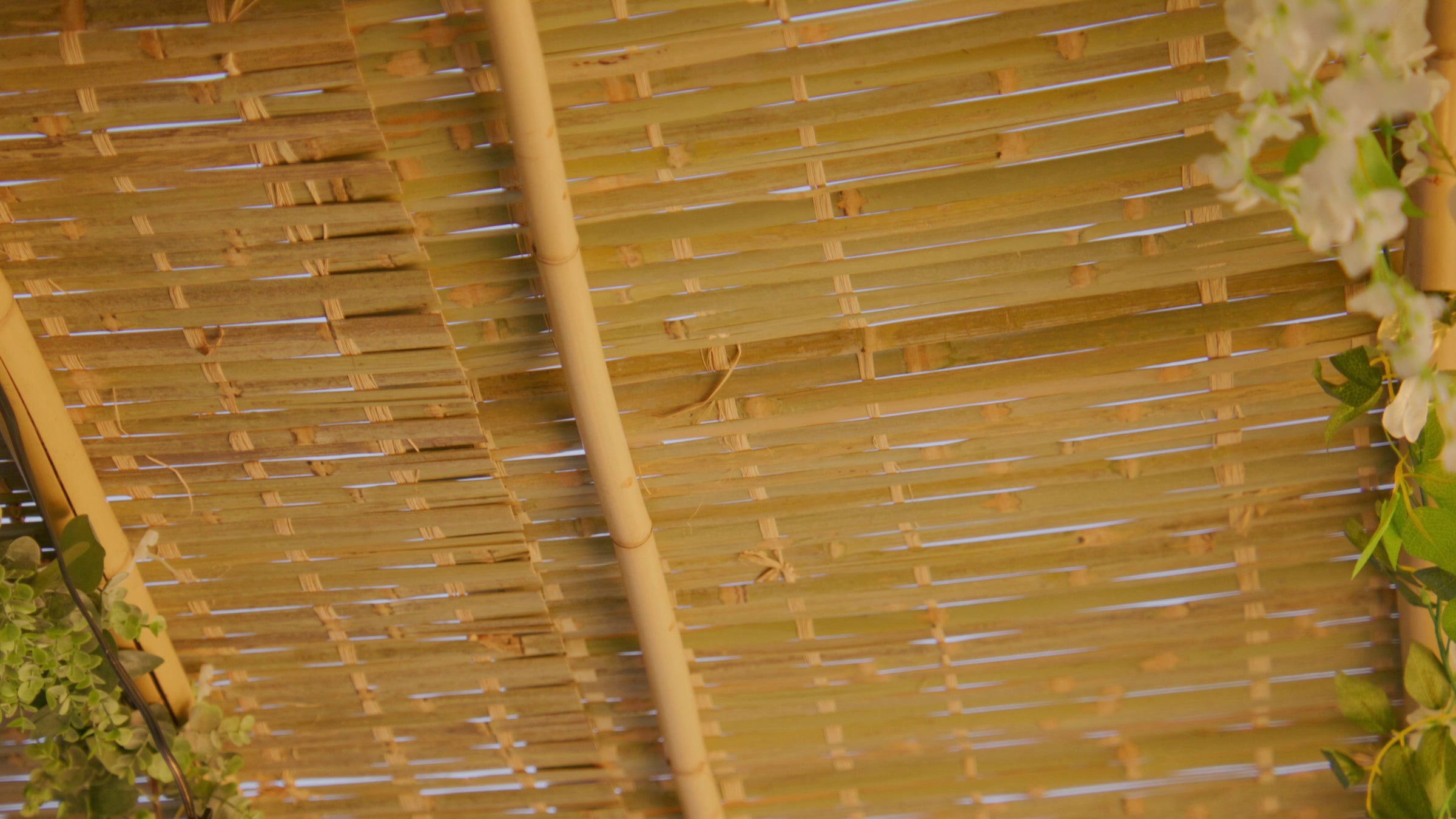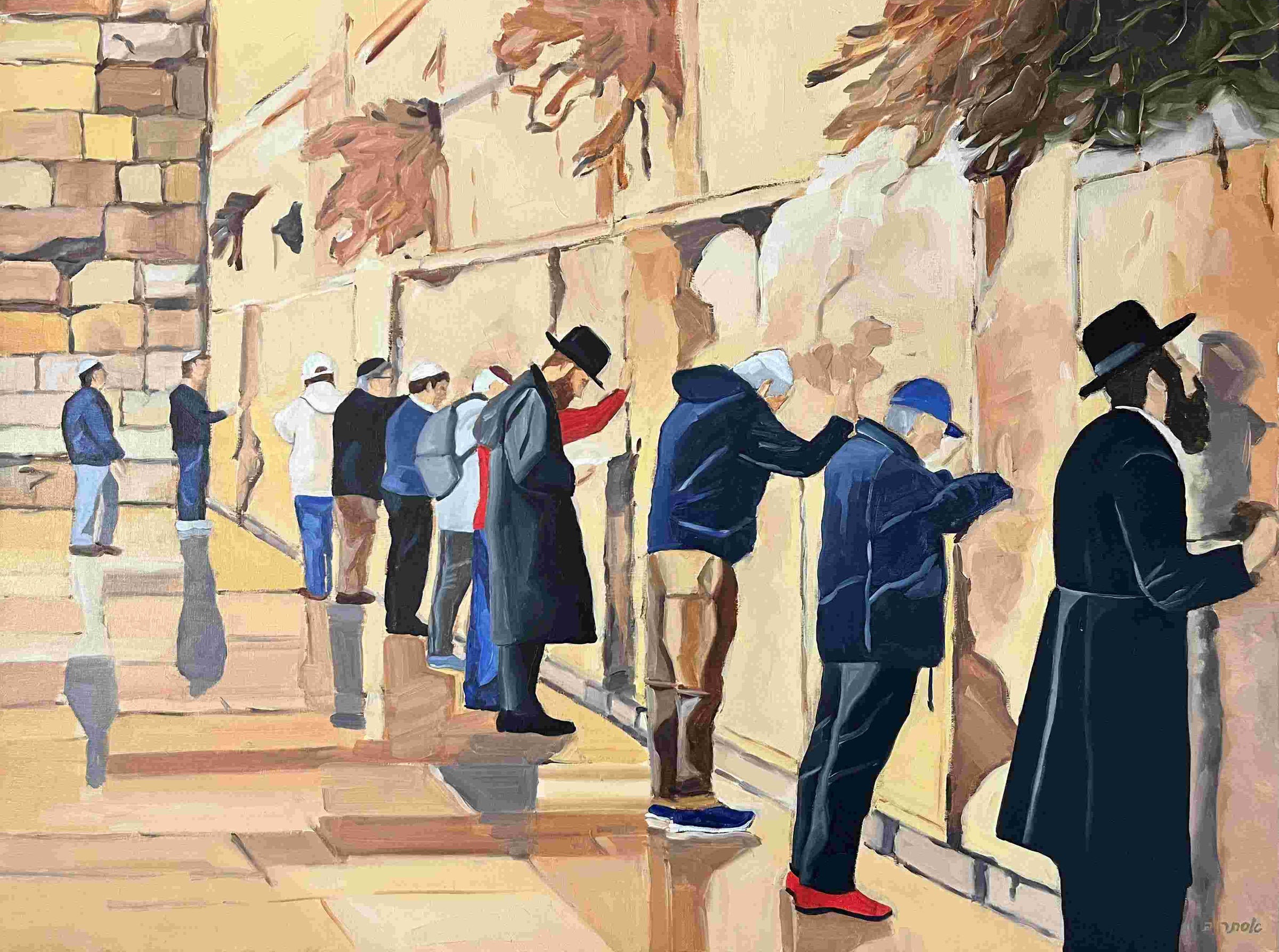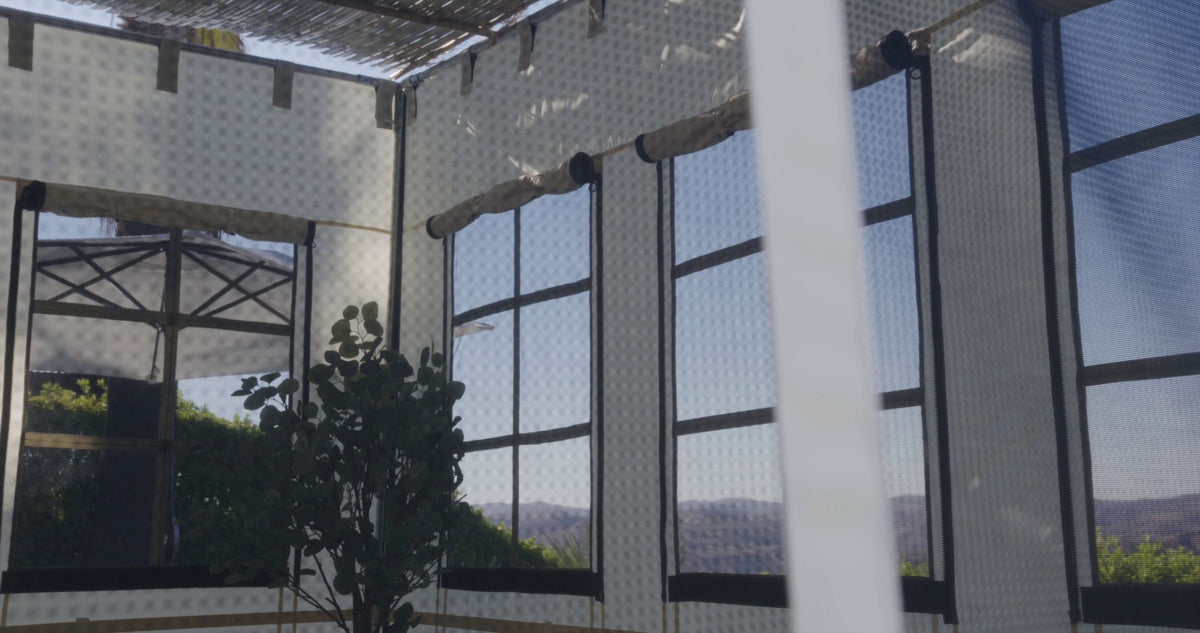

Table of contents
The holiday of Shemini Atzeret comes in like a plot twist at the end of a Sukkot story. After a joyful week of waving lulavim and cozying up under bamboo-and-palm-leaf roofs, Jews in the Diaspora are suddenly hit with an existential question:
“Wait… are we still in the Sukkah or not?”
Even more confusing? If you’re visiting Israel from outside the country, should you cling to your portable hut like a spiritual security blanket or go inside and pretend it never happened?
Let’s unpack the halachic drama, the customs, the contradictions – and the surprising climate factors – behind whether one should be eating their chulent inside or outside on Shemini Atzeret.
A Quick Refresher: What Is Shemini Atzeret Anyway?
First, a bit of orientation. Shemini Atzeret (“Eighth Day of Assembly”) is the holiday that immediately follows the seven-day festival of Sukkot. In Israel, it’s one day. In the Diaspora, it’s two days – the second of which doubles as Simchat Torah.
But unlike Sukkot, Shemini Atzeret doesn’t require a Sukkah. Or does it? That’s where things get murky.
The Halachic Cliffhanger: Sfeika D’yoma
In classic Jewish tradition, Diaspora Jews keep two days of festivals due to ancient calendrical uncertainty. This principle, called sfeika d’yoma (“a doubt about the day”), means that on day eight, you kind of act like it might still be day seven – just in case.
That logic would suggest that you should sit in the Sukkah on Shemini Atzeret, at least outside of Israel. And indeed, the Gemara in Sukkah 47a agrees: sit in the Sukkah, but don’t recite the blessing (leshev baSukkah).
Why not make the blessing? Because if it’s not Sukkot anymore, then the blessing would be a bracha levatalah – a wasted, and possibly prohibited, blessing.
Alternatively, some fear violating bal tosif, the Torah prohibition against adding to a mitzvah, by performing a Sukkot ritual on a non-Sukkot day.
So far, so good.
But Then…The Weather
If you’re reading this while wrapped in a down jacket in Warsaw or Montreal, you might be wondering why anyone would want to sit outside this time of year. And that’s the point.
The Aruch Hashulchan (O.C. 668:4) suggests that the Talmud’s instruction to sit in the Sukkah on Shemini Atzeret was only intended for places where the weather is still pleasant – where people naturally eat outside. But in colder places, sitting in a Sukkah would only make sense if you were doing it for religious reasons.
And that’s exactly the problem.
Sitting in a drafty Sukkah in Eastern Europe, wrapped in three layers of thermal underwear, screams religious ritual, making it harder to claim that you’re just chilling on your deck. As a result, doing so would risk disrespecting the sanctity of Shemini Atzeret, implying that it’s a second-class day or an extension of Sukkot (zilzul yom tov).
This is why some rabbis – including the Minchat Elazar (Vol. 4:31) – go so far as to say it’s forbidden by Torah law (issur min haTorah) to sit in a Sukkah on Shemini Atzeret in the cold.
Meanwhile, In Israel…
Things take another twist for Diaspora Jews who visit Israel for the holidays. In the Holy Land, Shemini Atzeret is just one day, not two. So for Israelis, the Sukkah is rolled up and stashed away before you can say “Simchat Torah.”
But what if you’re a jet-lagged American still clinging to your calendar from Queens?
Case Study: The Guest at the Indoor Table
Let’s say you’re from New York, visiting your cousins in Jerusalem. It’s Shemini Atzeret. They’re serving brisket in their dining room, and you, the pious out-of-towner, are eyeing their now-vacant Sukkah in the backyard.
Do you eat with them inside? Or do you brave the mosquitoes and eat alone under the stars?
The Split Decision
According to the Minchat Yitzchak (9:54) and Rav Shlomo Zalman Auerbach (Minchat Shlomo 1:19), if it’s socially difficult or logistically awkward to eat outside alone – you don’t have to.
That’s right: your status as a ben chutz la’aretz (Jew from outside Israel) entitles you to leniencies. Sitting alone in a Sukkah while your hosts are inside might not just be antisocial – it could be halachically discouraged.
On the flip side, Rav Ovadia Yosef (Chazon Ovadia, Sukkot, pp. 480–481) holds that if it’s not difficult – say you’re staying solo or have easy access to a Sukkah – you should eat in it.
And some, like the rabbi in one account, are more insistent. He once told a yeshiva student to cancel his dinner plans and find a Sukkah, even in Israel, if he was from the Diaspora.
Half-a-Sukkah Solutions?
Creative minds have even proposed hybrid Sukkah setups for mixed groups. One comment humorously suggested building a Sukkah where half the roof is valid Schach (Sukkah roof covering), and the other half is open sky. The Diaspora guest sits under the Schach, while the Israeli family eats under the stars – all technically in the same “room.” Problem solved?
Well, halachically murky and logistically awkward, but at least it shows commitment.
So… What’s the Bottom Line?
Like most things in Jewish law, there is no one-size-fits-all answer. It depends on your location, your origin, your hosting situation, and whether you're Team "Better Safe Than Sorry" or Team "Let’s Not Embarrass Our Hosts."
Here’s a summary cheat-sheet:
Scenario |
Should You Sit in the Sukkah? |
Outside Israel (cold) |
Only if weather permits & not disruptive. No blessing. |
Outside Israel (warm) |
Yes. Sit in the Sukkah. No blessing. |
In Israel, living there |
No. Don’t sit. It’s not Sukkot anymore. |
In Israel, visiting from abroad |
Ideally yes – if it’s easy. If socially awkward, you’re off the hook. |
A Final Thought: Intent Over Intensity
The Sukkah is all about dwelling with joy. So whether you’re under bamboo or a chandelier this Shemini Atzeret, know that you’re part of a millennia-old conversation – one with room for opinions, personalities, and yes, even porches.
Let the brisket be hot, the wine be sweet, and the Sukkah debates never end. Happy Shemini Atzeret!
